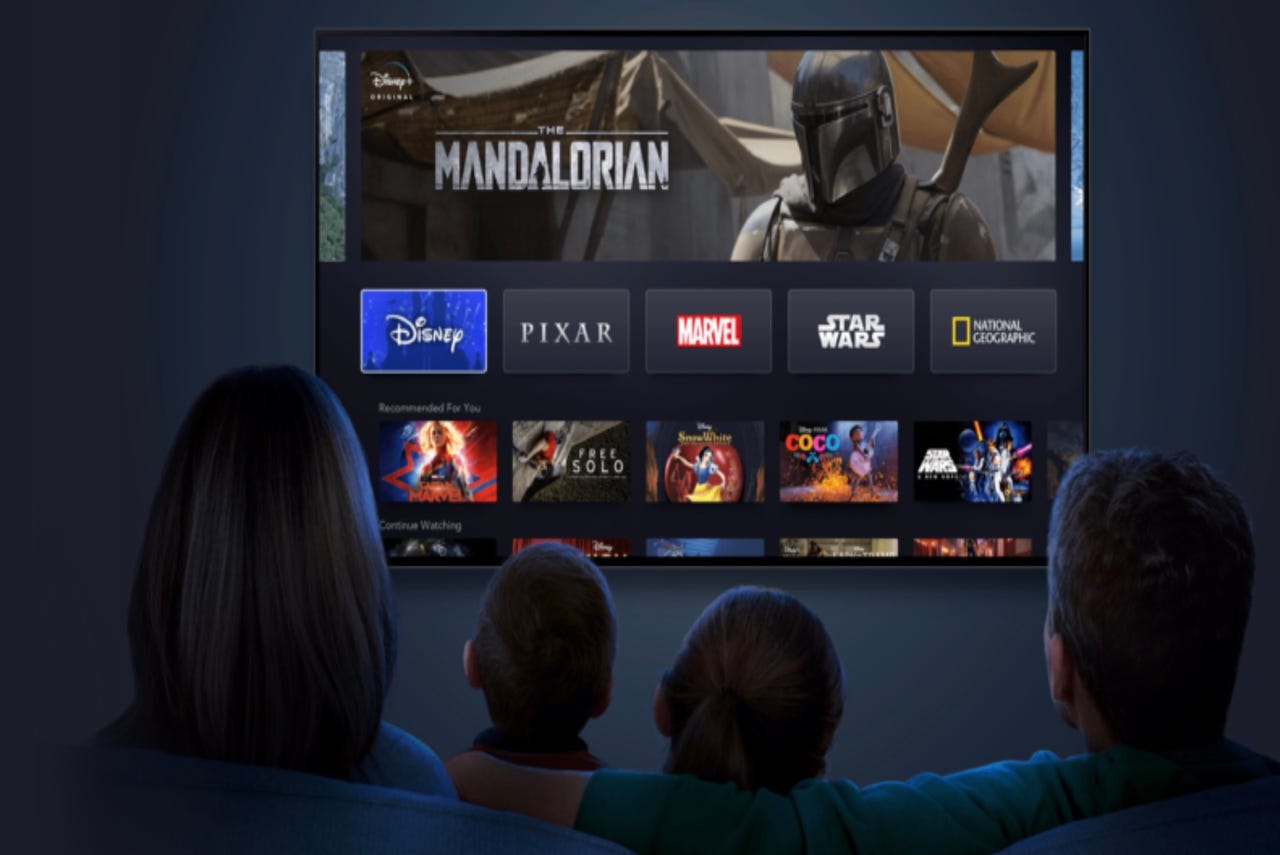
































Just a few months after the initiative was officially announced, the Disney+ password-sharing crackdown is hitting the US.
Earlier today, US subscribers to the streaming service began receiving emails detailing new changes to its terms of service. Among those changes is a prohibition against using login information that isn't yours and an acknowledgment that Disney may analyze your account to make sure you're complying.
Also: The best video streaming services
Hulu (primarily owned by Disney) sent out a similar message last week.
According to the email, the restriction took effect for new subscribers at the end of January and goes into effect for existing subscribers on March 14. "We're adding limitations on sharing your account outside of your household," the email explained, "and explaining how we may assess your compliance with these limitations."
Unless specifically allowed, the company said (and there's nowhere in any Disney+ agreement or tier thatdoesprovide this allowance), users can't share their subscription outside of their household. As far as Disney is concerned, your household is defined as "the collection of devices associated with a primary personal residence."
Also: The best VPN services
The new user agreement covers the other side of things by adding that customers cannot "impersonate or misrepresent your affiliation with any person or entity," meaning you can't use another person's login credentials without their consent.
If Disney determines a subscriber has violated this agreement, the account may be limited or terminated without prior warning. Exactly how Disney would know this wasn't explained, but it's almost certain they would take similar measures to other services and analyze how many devices are logged in at once and where those devices are located.
After seemingly turning a blind eye to the practice of password-sharing for years, almost all major streaming services have recently started banning freeloaders. The fact that Netflix, who was the first big-name service to bring out the ban, saw a huge spike in subscriptions may have likely paved the way for others to do the same.
 Tags chauds:
Maison & bureau
Tags chauds:
Maison & bureau